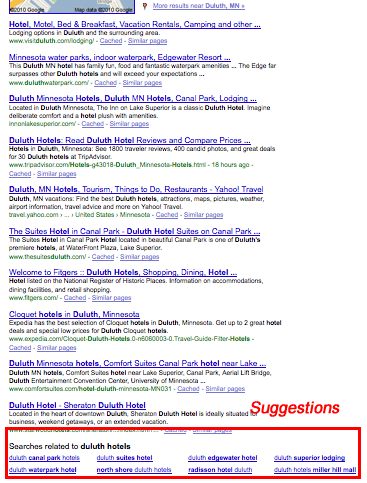Read it and weep. Google seems to be testing even deeper integration of real-time search in SERPs (search engine results pages). Either that or maybe it’s a bug. Check out these suggestion results (found at the bottom of the SERP) for our KnowEm friend, Michael Streko.
Obviously, Google is now cruising real-time search and Twitter for SERPs suggestions. Here’s where that suggestion is derived from:
As background, “Suggestions” are inserted by Google at the bottom of some results pages. There are few (if any) proven SEO tactics to place or predict suggestion links.
Here’s Google’s suggestions for “AIMCLEAR.”
One suggestion seems to be derived from Google’s real-time search indexing of @seosnack’s multiple retweets of our stuff.
It is unclear what types of searches Google will trigger these new suggestions. For instance a search for “@beebow,” the Twitter handle of AIMCLEAR‘s Lauren Litwinka, does not trigger real-time search suggestions, nor does her name; no real-time search results, either. (But we still love her 🙂 .)
The results are also intermittent from search to search for the same keyword and we’ve not found commercial results outside of the search industry as of yet. This may be a limited test.
Anyway, this is an interesting development as Google continues is foray into real-time search.














